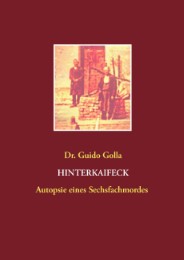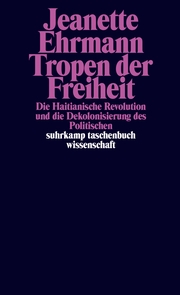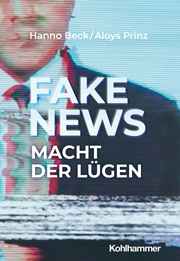Political Communication and European Parliamentary Elections in Times of Crisis (E-Book, PDF)
Political Communication and European Parliamentary Elections in Times of Crisis
eBook - Perspectives from Central and South-Eastern Europe, Political Campaigning and Communication
Bibliographische Informationen
Format: Digitale Rechteverwaltung: Digitales Wasserzeichen
Beschreibung
This book tackles the 2014 European Parliamentary election as an event, phenomenon and process from an interdisciplinary but coherent perspective. This edited volume includes research by prestigious academics from the former communist countries in question, all of which have only recently become EU members. The contributors consider whether there is a crisis of Euroscepticism, or, for that matter, extremism of any kind in each country discussed. In doing so, the volume seeks to analyse the future of the European Union itself. It will appeal to scholars and graduate students interested in elections and voting behaviour, comparative European politics, and political communication.
Autorenportrait
Ruxandra Boicu is Associate Professor at the Faculty of Journalism and Communication Studies, University of Bucharest, Romania, where she is Head of the MA on Media and Communication. She has authoredDezbaterea electoral televizat [The Televised Electoral Debate] (2011) and other books and scholarly articles on political discourse, gender studies, verbal interaction in blogging, and diasporic media.
Silvia Branea is Associate Professor at the Faculty of Journalism and Communication Studies, University of Bucharest, Romania. Her research interests include political communication, gender studies, and globalization. She has participated in prestigious international projects and is the author/co-author of several books and articles, including Romanian Journalists and Politics in 2004.
Adriana tefnel is Associate Professor at the Faculty of Journalism and Communication Studies, University of Bucharest, Romania. She won a postdoctoral scholarship in 2015 from University of Bucharest Research Institute to conduct research on populism and political discourse. She is the author ofWhen the Stranger Become the Enemy: The Image of the Est-Europeans in Western-Europe Political Discourse (2014).Inhalt
Tables.-Foreword; Claes de Vreese.- Introduction: Proposal of a Framework for the 2014 European Parliament Elections and Campaigns in Central and Eastern Europe; Silvia Branea and Ruxandra Boicu- Part I: Media Coverage and Political Marketing.- (1) Political Advertising in Polish European Parliament Election Campaign; Agnieszka Stpiska.- (2) Media rhetoric and virtual communication in Bulgaria; Ivanka Mavrodieva.- (3) Intermedia Agenda-Setting during the 2014 EP Elections in Poland; Bartlomiej Lodzki and Anna Paluch.- (4) An Overshadowed Campaign in two Croatian Dailies; Gordana Vilovi.- (5) Perspectives on the Romanian Electoral Context and Media Coverage of Campaign Discourses; Adriana tefnel.- (6) Coverage of the 2014 European Parliamentary Electoral Campaign in Romanias Print Press (A Case Study); Ruxandra Boicu.- Part II: A Second-order Campaign?.- (7) A Second-order Campaign in Lithuania?; Ingrida Unikait-Jakuntaviien.- (8) Content emptiness, low media coverage, exhausted parties and indifferent voters: an invisible 2014 European Parliamentary election campaign in the Czech Republic; Jakub Charvat.- (9) Outline of women candidates in Romanias EP elections; Silvia Branea.- Part III: European vs. National Agenda.- (10) The EU agenda as an emerging cleavage of political competition? Parties and their voters in Slovakia; Olga Gyarfasova.- (11) European and national agendas in the 2014 EP elections in Hungary; Boglárka Koller.- (12) Reflection of citizens agenda in the European Parliament Election in the Czech Republic; Ilona ¦vihlíková.- (13) Looking behind the scenes of the electoral panel discussion organized by the Czech independent think-tanks; Kry¨tof Kruli¨.- Part IV: Ideological premises, candidates recruitment, vote results.- ctoral Strategiesl; Marzena Cichosz.- (15) Results of the European Parliament Elections in Poland; Robert Alberski(16) Patterns of Recruitment of Polish Candidates in the 2014 European Parliament Elections; Dariusz Skrzypiski.- (17) Election Results, candidate lists, and the framing of campaigns in the Czech Republic; Otto Eibl and Michal Pink.- (18) Czech Eurosceptic Parties in the European Parliament; Petr Just- Index.
E-Book Informationen
„eBooks“ sind digitale Bücher. Um eBooks lesen zu können, wird entweder eine spezielle Software für Computer, Tablets und Smartphones oder ein eBook-Reader benötigt. Da es eBooks in unterschieldichen Formaten gibt, gilt es, folgendes zu beachten.
Von uns werden digitale Bücher in drei Formaten ausgeliefert. Die Formate sind EPUB mit DRM (Digital Rights Management), EPUB ohne DRM und PDF. Bei den Formaten PDF und EPUB ohne DRM müssen Sie lediglich prüfen, ob Ihr eBook-Reader kompatibel ist. Wenn ein Format mit DRM genutzt wird, besteht zusätzlich die Notwendigkeit, dass Sie einen kostenlosen Adobe® Digital Editions Account besitzen. Wenn Sie ein eBook, das Adobe® Digital Editions benötigt, herunterladen, erhalten Sie eine ASCM-Datei, die zu Digital Editions hinzugefügt und mit Ihrem Account verknüpft werden muss. Einige eBook-Reader (zum Beispiel PocketBook Touch) unterstützen auch das direkte Eingeben der Login-Daten des Adobe Accounts – somit können diese ASCM-Dateien direkt auf das betreffende Gerät kopiert werden.
Da eBooks nur für eine begrenzte Zeit – in der Regel 6 Monate – herunterladbar sind, sollten Sie stets eine Sicherheitskopie auf einem Dauerspeicher (Festplatte, USB-Stick oder CD) anlegen. Außerdem ist die Anzahl der Downloads auf maximal 5 begrenzt.
Weitere Artikel aus der Kategorie "Politikwissenschaft"
Lieferbar innerhalb 24 Stunden

Neuerscheinung

Neuerscheinung






